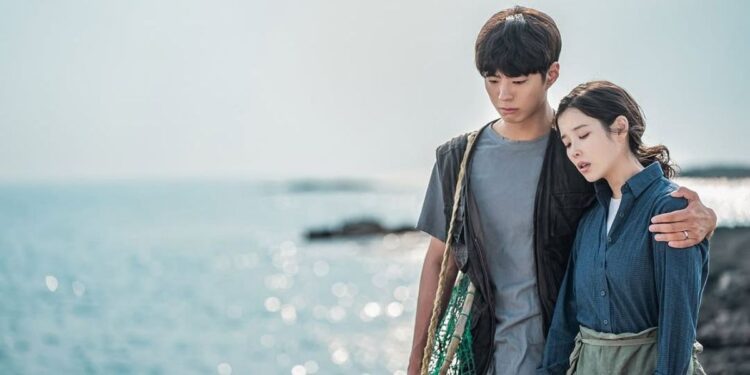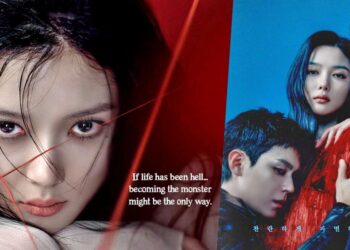Netflix’s “When Life Gives You Tangerines” is more than a love story that spans decades—it’s a critique of patriarchy against Jeju Island’s breathtaking beauty. Through nuanced storytelling, strong female characters, and the harsh realities of traditional Korean society, the drama invites viewers to peel back the layers of gender, power, and resistance.
“When Life Gives You Tangerines”: A Story Rooted in Patriarchy and Blossoming in Defiance
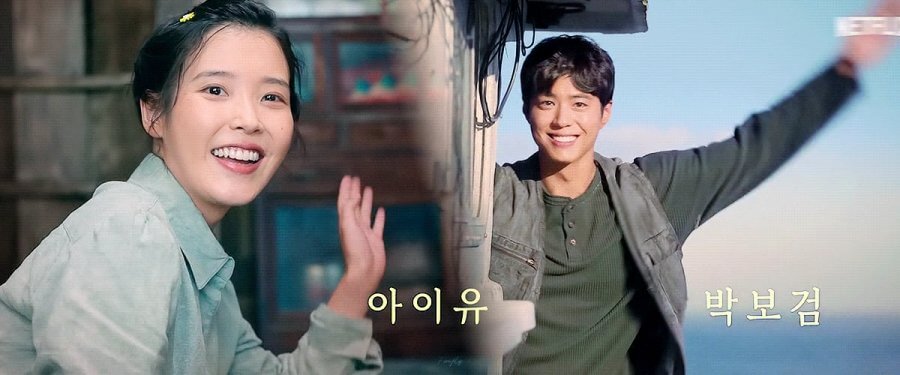
Set from the 1960s to modern-day South Korea, the series traces the lives of Ae-sun and Gwan-sik, childhood friends turned lovers. While the tangerine orchards serve as the title, the real terrain the characters navigate is a society deeply entrenched in patriarchal norms.
Ae-sun, played by IU, is bold, outspoken, and dreams beyond the domestic sphere. She is a woman who refuses to conform to the expectations of her time. Her rebellion is not loud, but it is constant. Her resistance to marriage, desire for education, and unwillingness to submit to male authority challenge the gender roles imposed by Korea’s Confucian-rooted patriarchy.
The “Good Man” Trap: Gwan-sik and Quiet Complicity
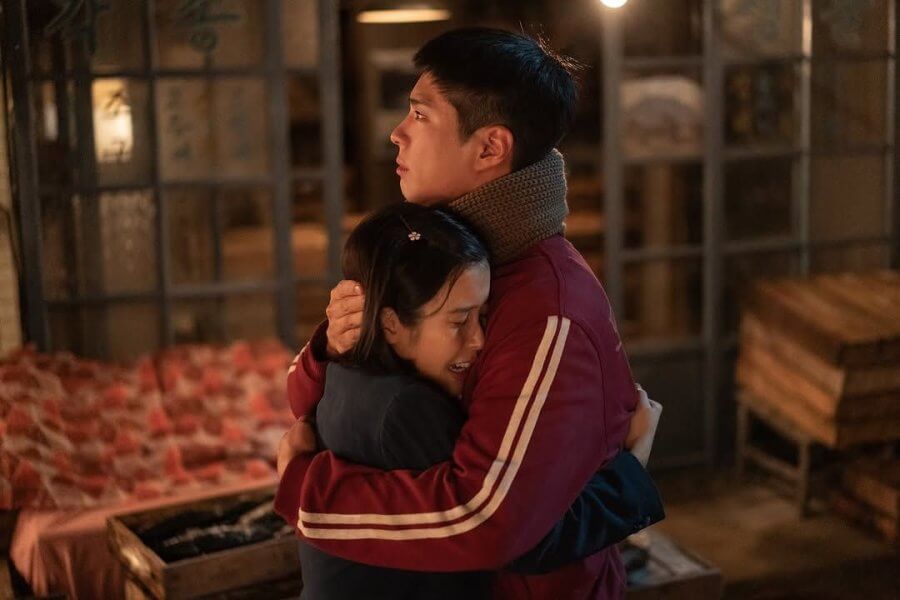
Park Bo-gum’s portrayal of Gwan-sik is equally compelling. In the Korean drama “When Life Gives You Tangerines,” he represents a different side of the patriarchy: the “good man” who unintentionally upholds oppressive systems. He is dutiful, hardworking, and emotionally reserved—a reflection of hegemonic masculinity, where vulnerability is weakness and silence is love.
The drama shows what happens after years of staying quiet and doing what’s expected. His calm and serious nature has turned into emotional distance, making it hard for him to connect with others, even with his own daughter.
On the other hand, Gwan-sik always supports Au-sun in pursuing her dreams: going to college, becoming a poet, and even becoming the first female village chief.
Three Generations of Women
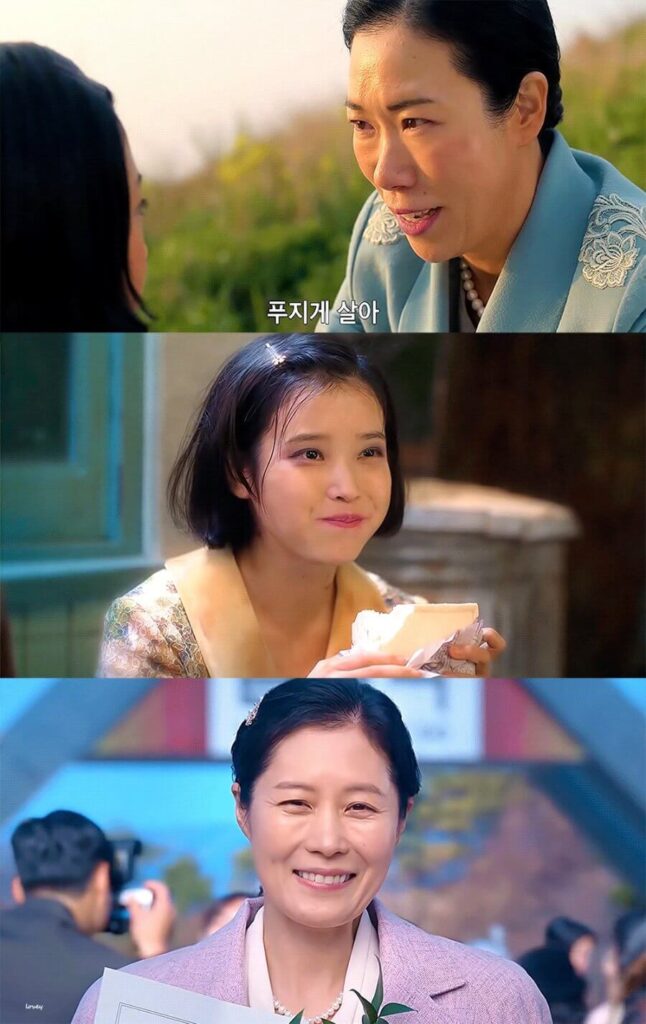
The drama spans three generations of women: generation of Ae-sun’s mother (played by Yeom Hye-ran) and Gwan-sik’s mother (played by Oh Min-ae), generation of Ae-sun, and generation of Geum-myeong. The women’s stories are about survival and breaking inherited patterns. From stifled ambition to choosing love on their terms, the evolution of female agency is central to the narrative.
In the drama, IU plays two roles as Ae-sun and her daughter Geum-myeong. This dual role offers a powerful metaphor: the cyclical nature of patriarchal trauma and the inheritance of both pain and strength. Older Ae-sun (played by Moon So-ri) reflects on her life with pride and regret, questioning the cost of her compromises.
Symbolism: Tangerines, Seasons, and Silent Spaces
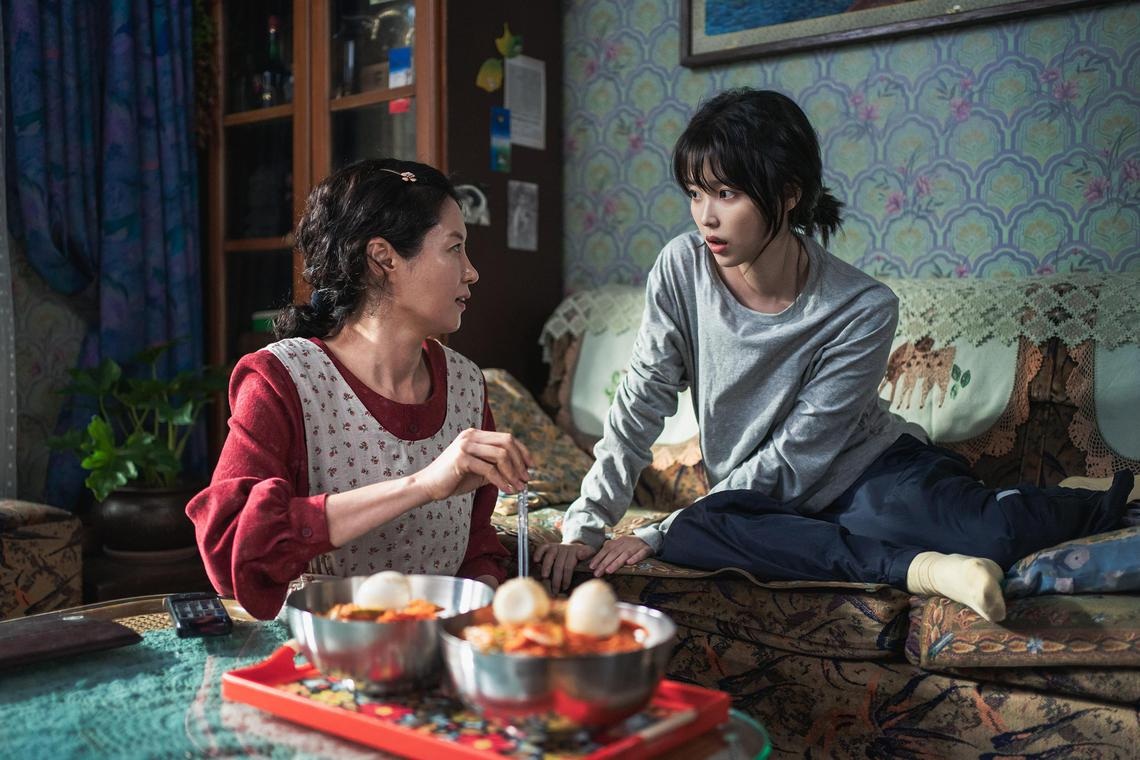
The show’s aesthetic beauty hides a layered critique. Tangerines—ripe, sweet, yet perishable—symbolize the fragility of freedom within a patriarchal structure. The passing seasons mirror Ae-sun’s aging and the societal changes around her, while domestic spaces serve as sanctuary and prison.
The quiet moments—Ae-sun staring into the distance, Gwan-sik watching her from afar—are loaded with meaning. Silence is both a tool of patriarchy and a mode of resistance.
Why “When Life Gives You Tangerines” Matters Today

As Korean dramas continue to gain global traction, “When Life Gives You Tangerines” stands out for its storytelling and bold feminist undercurrent. It speaks to women who have been told to “wait,” “obey,” or “settle down.” It speaks to men who have never been taught to cry or listen.
In an era where patriarchal systems are being challenged worldwide, this drama is a reminder that change often begins in the quietest of revolutions—in love, memory, and the peeling of a single tangerine.
Join us on Kpoppost’s Instagram, Threads, Facebook, X, Telegram channel, WhatsApp Channel and Discord server for discussions. And follow Kpoppost’s Google News for more Korean entertainment news and updates.

